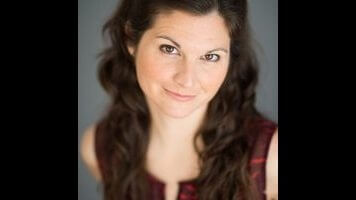Lisa Jakub’s straitlaced child-acting career makes for a dry memoir

Near the end of child actor Lisa Jakub’s memoir, she recounts why she left L.A. to a group of ladies in a quilting class, writing that they looked “as if they were hoping for a better story.” The same could be said for her book. If Jakub looks kind of familiar—which she must get a lot, as per the title You Look Like That Girl—it is most likely from the mid-1990s, when her child acting career landed her roles in both Mrs. Doubtfire (as the older sister) and Independence Day. But to those who think, “Oh, child actor! I bet she has some messed-up stories,” Jakub’s book is full of just the opposite.
Messed-up child actor Jakub is not. She stays clear of the catering tables full of drugs. Any sex acknowledged in the book is handled with PG passing mentions. She doesn’t drop names. She’s so very polite about it all. She would likely attribute it to her Canadian-ness. Although she sometimes takes a snarky tone in regard to the film industry, Jakub never takes any hard shots at her former employers. She doesn’t hate the film industry—in fact, her departure from it is less a big moment that changes the tide and more the slow realization that what she had been doing since she was 4 years old was maybe not what she wanted for the rest of her life. But make no mistake: No one forced her. Her parents are about as even-keeled and supportive as it gets, and the acting career just happened. You Look Like That Girl reads like it comes from a nice person who has found her inner peace after coming to grips with a childhood that was, at the very least, outside the norm. It’s easy to feel happy for her, to share in that joy that she was able to figure it all out for herself, all the while feeling downright bored by her story.
The most interesting elements of the book—and thankfully where she spends most of her pages—come from her ability to give fans not only a behind-the-scenes look at the film industry but also her personal insights. The fan interactions, in particular, offer a fascinating look into the psychology of how fans treat her. She analyzes the expectations that come with being an actor, and the odd sense of obligation that forms as a result.
She also delves into personal interactions with the likes of John Malkovich and Robert Duvall. She writes about feeling out of place when trying to integrate back into schools after missing much of the experience while in Hollywood. As someone who never made it to the level of superstardom, she spends a lot of time in motels with her mother and in group living situations involving an open-door policy to struggling actors. It’s an interesting side of Hollywood. These stories even take her to a stay in the home where the Menendez brothers murdered their parents.
There are plenty of engaging stories throughout the book. It’s just that they come from the world she claims to be done with now that she has grown up and stopped “pretending.” And as entertaining as the little stories may be along the way, Jakub’s overall arc is undoubtedly the least interesting of the bunch. When fans know the tales of child actors are all too often rife with turbulence, reading the memoir of the girl who avoided it all just isn’t worth the time.